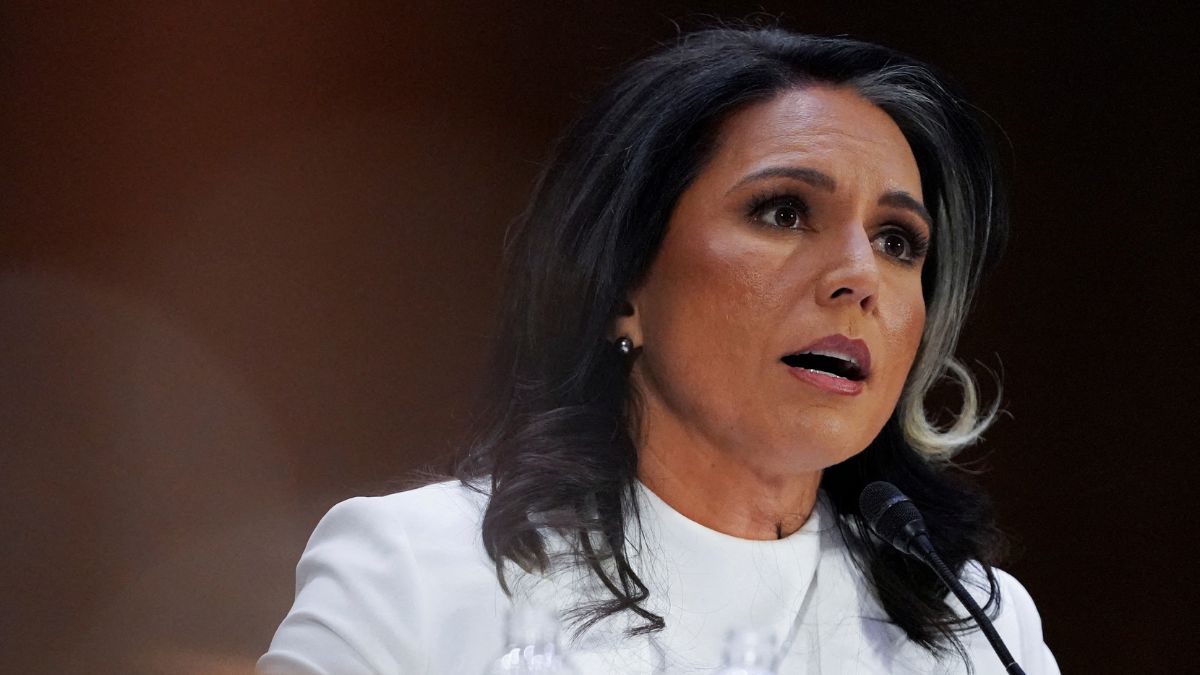Professor Muhammad Yunus’ interim administration criticised US National Intelligence Director Tulsi Gabbard’s remarks on the alleged persecution of minority populations in Bangladesh, claiming that her views were “not based on any evidence or specific allegations”.
“They (Gabbard’s comments) paint an entire nation with a broad and unjustified brush,” the chief adviser’s office stated in a verified Facebook post just after midnight Monday.
It said that Gabbard’s comment to an Indian television channel was “misleading and damaging to the image and reputation of Bangladesh, a nation whose traditional practice of Islam has been famously inclusive and peaceful and that has made remarkable strides in its fight against extremism and terrorism”.
The US spy chief, now in India, earlier on Monday said the “longtime unfortunate persecution, killing, and abuse of religious minorities like Hindus, Buddhists, Christians, and others has been a major area of concern for the US government and President Trump and his administration."
In an interview with the TV channel, Gabbard alleged “persecution and killing” of religious minorities in Bangladesh and that “the threat of Islamic terrorists” in the country was “rooted” in the “ideology and objective” to “rule and govern with an Islamist caliphate”.
She said US President Donald Trump’s newly begun talks with Bangladesh’s interim government on the issue while “The talks are just beginning between President Trump’s new cabinet coming in and the Government of Bangladesh, but this continues to remain a central focus area of concern".
But the chief adviser’s office said groundlessly linking Bangladesh to the idea of an “Islamist caliphate” undermined the hard work of countless Bangladeshis and their friends and partners around the world who were committed to peace, stability, and progress.
Impact Shorts
More ShortsIt said Bangladesh “strongly condemns any efforts to link the country to any form of “Islamist caliphate’”.
“Political leaders and public figures should base their statements, especially about the most sensitive issues, on actual knowledge and take care not to reinforce harmful stereotypes, to fan fears and potentially even stoke sectarian tensions,” Yunus’s office said.
Gabbard, who arrived in New Delhi on Sunday on a three-day visit, spoke about the ideology of an “Islamic Caliphate” and how extremist elements and terror groups globally aim for such an outcome.
The Chief Adviser’s office, however, said Bangladesh, like many countries around the world, faced challenges of extremism, “but it has continuously worked in partnership with the international community, including the US, to address these issues through law enforcement, social reforms, and other counterterrorism efforts".
“In support of our shared global efforts to combat extremism and terrorism, the Interim Government of Bangladesh remains committed to engaging in constructive dialogue based on facts and on respect for the sovereignty and security of all nations,” the statement read.
)